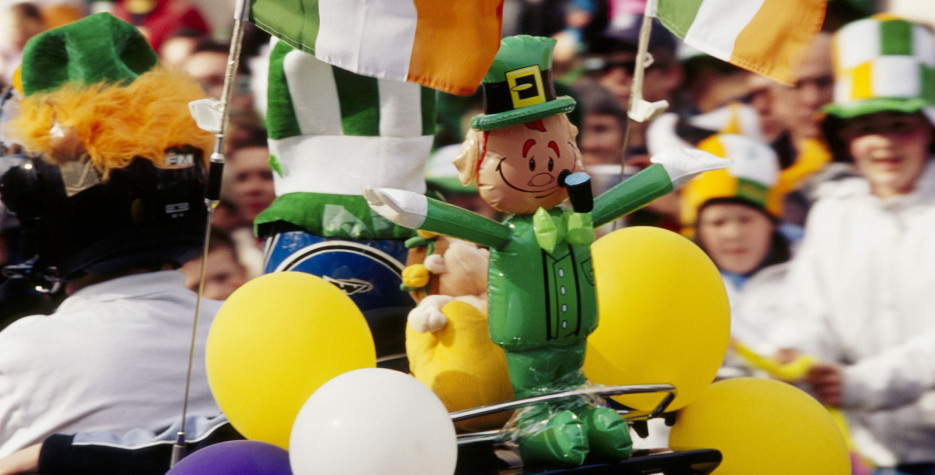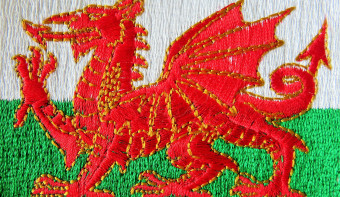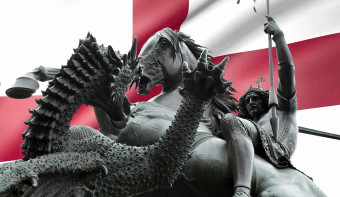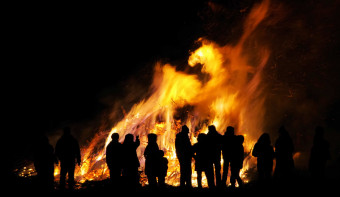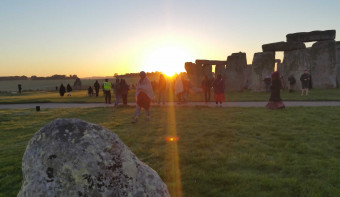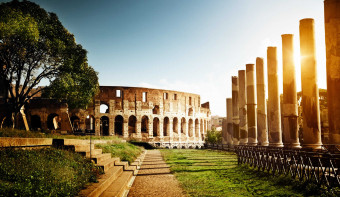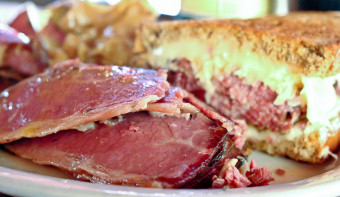About Saint Patricks Day
History of St. Patrick's Day
St. Patrick, the patron saint of Ireland, is a widely known historical figure and arguably the most famous patron saint of a country.
Despite this level of fame, we know surprisingly few details about his life. Interestingly he's not the only recognized patron saint of Ireland, both 'Brigid of Kildare' and 'Columba' are officially recognized as such.
Also, St Patrick is a patron saint of Nigeria, Montserrat, and Engineers.
It is generally accepted that St. Patrick was born in Northern England or Southern Scotland to wealthy parents around 385AD. His original name was probably Maewyn Succat. He later adopted Patricius as his Christian/Roman name, which became widely known as Patrick.
While he was only sixteen, Patrick was taken prisoner after a band of raiders from Ireland had attacked his family's estate in Wales. They took him back to Ireland where he spent six years in captivity as a slave. It is said that it was at this time, while he was working as a shepherd on Slemish mountain that he became a devout Christian.
He eventually escaped from his slavery to Gaul (in modern-day France) where he studied for twelve years in the monastery under St. Germain, the bishop of Auxerre. It was during this period of training that Patrick realized his calling in life was to become a missionary and convert pagans to Christianity.
After his training, he wanted to return to Ireland, to convert the native pagans there to Christianity. But he had to bide his time as St. Palladius was ordained by Pope Celestine and sent to Ireland as their first bishop. It was over two years later when Palladius was transferred to Scotland, that Patrick was appointed as the second bishop to Ireland.
Patrick proved himself to be quite adept at winning converts to Christianity. So much so, that he upset the local Celtic Druids. In fact, he was arrested on several occasions but managed to escape each time. He journeyed extensively across Ireland, establishing monasteries in several locations. In addition, he also set up churches and schools, all of which created the foundations for the whole of Ireland to eventually be converted to Christianity.
His missionary work in Ireland continued for thirty years. After that, Patrick retired to County Down in North-Eastern Ireland. Patrick died on March 17th in 461AD, apparently at the ripe old age of 122, according to the Annals of the Four Masters, a chronicle of medieval Irish history.
He was canonised by the local church, as was the practice at the time, thus his elevation to sainthood was never formally granted by a Pope; however, he is in the church's official list of Saints. The day became a feast day due to lobbying by the Irish-born Franciscan scholar Luke Wadding in the early part of the 17th century, though it soon evolved into more of a secular holiday.
Much Irish folklore surrounds St. Patrick's Day, Some of this lore includes Patrick healing the sick, and raising the dead.
He is said to have given a sermon from a hilltop that drove all the snakes from Ireland. No snakes are known to have existed in Ireland at least since the end of the ice age. Some scholars think the driving away of the snakes may have been a metaphor for the conversion of the pagans.
A more plausible story attributed to Patrick is how he used the Shamrock, a three-leaved clover, to explain the Trinity. In his sermons, he would use it to represent how the Father, the Son, and the Holy Spirit could be separate elements of the same entity.
Although the color green is everywhere on St. Patrick's Day, the original color associated with the saint was blue. The earliest depictions of St. Patrick shows him wearing blue garments rather than green, and when British King George III created an order of chivalry for the Kingdom of Ireland, the Order of St. Patrick, in 1783, its official color was sky blue, known as St. Patrick’s Blue. (Kings Edward VII, George V, Edward VIII and George VI were made knights of St. Patrick in 1868. The last Knight of St. Patrick was created in 1936. The last surviving knight was Prince Henry, Duke of Gloucester, who died in 1974.)
Today, St. Patrick's Day is a day to recognize Irish heritage and celebrated by people of all backgrounds in many parts of the world, such as the United States, Canada, and Australia. Although these are the main overseas populations, St. Patrick's Day is also celebrated in other locations as far-flung from Ireland as Japan, Singapore, and Russia.
It was first publicly celebrated in the United States of America in Boston in 1737. Surprisingly, the first recorded St. Patrick's Day parade didn't actually take place in Ireland, when on March 17th 1762, Irish soldiers serving in the English military marched through New York City.
The St. Patrick’s Day Parade in New York was cancelled in 2020 because of COVID-19, the first time it wasn’t held in more than 250 years.
The global spread of the holiday was partly due to the Great Potato Famine of 1845 which forced over a million of the Irish population to emigrate.
St. Patrick's Day Quiz
Get ready to test your knowledge of all things Irish and St. Patrick’s Day with our fun and challenging multiple choice quiz! From the history and traditions of this iconic holiday to the rich culture and heritage of Ireland, this quiz will put your smarts to the test. So grab a pint of Guinness and get started – can you score a perfect 10/10? It's time to go green! March 17th is St. Patrick's Day and a day to celebrate all things Irish. Why not test your knowledge of the Emerald Isle with our fun quiz?
Did you Know?
Corned beef and cabbage is not an Irish dish
It is an Irish-American meal. In the late 1800s, many Irish immigrants were poor and could not afford to eat meat very often. They bought the least expensive cut of meat – brisket – which they would soak in a brine to make tender, and the cheapest vegetable: cabbage.
Construction of New York's St. Patrick's Cathedral was halted by the Civil War
Although work began in 1858, the construction was disrupted by the Civil War. At the time, the area now known as Midtown was actually far north of most of the population of Manhattan.
Irish Americans
Irish heritage is strong in America: More than 31.5 million residents claim Irish ancestry, second only to German (43.0 million).
[Source: U.S. Census Bureau]
Similar Observances
Walpurgis Night
Read More
International Tartan Day
Read More
Raksha Bandhan 🛕
Read More
Other Observances on March 17th 2026
World Social Work Day
Read More
National Day of Unity
Read More


